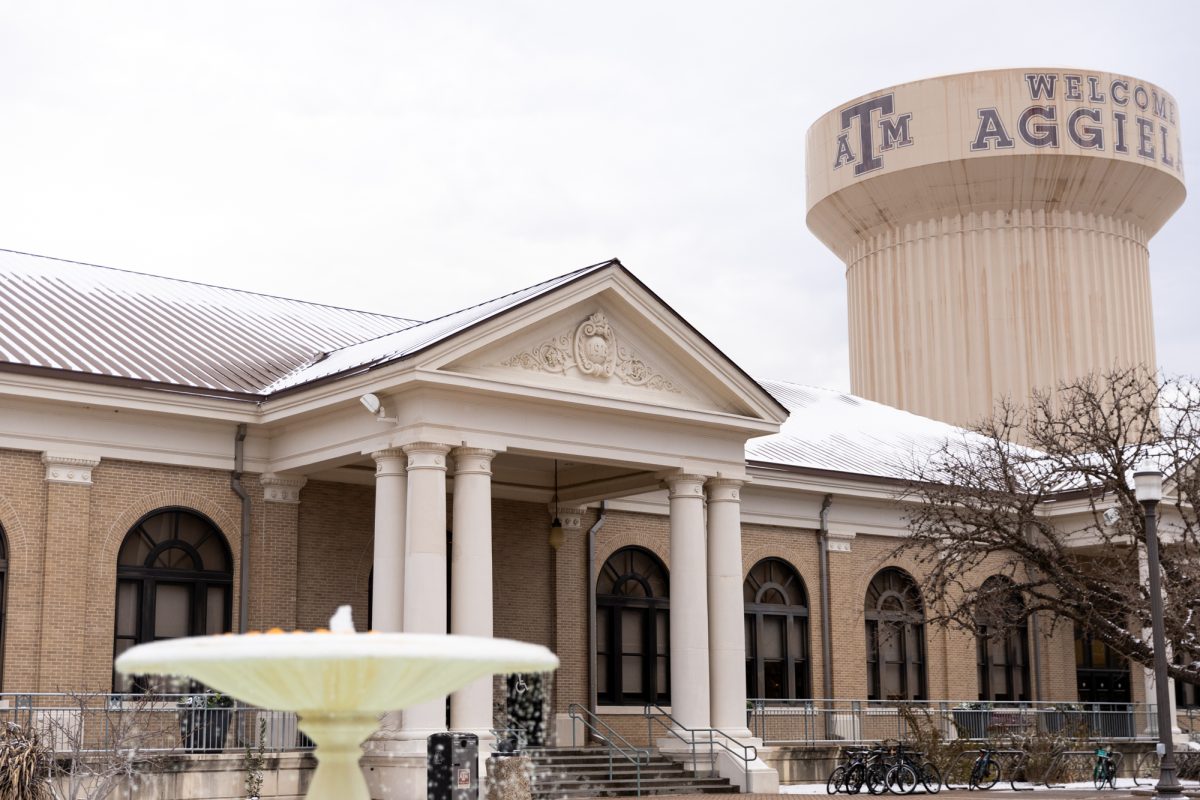On March 24, hundreds of Texas A&M students and Bryan-College Station residents came together to participate in the local March For Our Lives event, joining thousands of Americans across the nation who did the same.
On the morning of the protests, the National Rifle Association posted a brief message alongside a membership drive video. “Today’s protests aren’t spontaneous,” the message read. “Gun-hating billionaires and Hollywood elites are manipulating and exploiting children as a part of their plan to destroy the Second Amendment and strip us of our right to defend ourselves and our loved ones.”
In response to The Battalion’s coverage of the local protest, commenters on social media accused students of skipping The Big Event service project to protest — even though the organizers of the march at A&M specifically scheduled the event so students could attend both. All over, the voices of young people in particular were dismissed as uninformed, and the act of protesting was described as more of a nuisance than an exercise of constitutional rights.
Americans disagreeing with each other isn’t a new phenomenon — Americans have differed in their views since our country’s founding, and will continue to do so until the end of time. However, much of the criticism the protestors faced this weekend have no ground to stand on.
When the Founding Fathers drafted the Constitution, they included 10 amendments known as the Bill of Rights, detailing personal freedoms and rights every American citizen is guaranteed, while limiting the government’s power to infringe upon those rights. The first and foremost right the Founders detailed is the First Amendment — in addition to freedom of religion and freedom of the press, every American citizen has the right to come together in a peaceful manner and defend or promote their ideas, which is promised through another part of the First Amendment: the freedom of speech.
The rights included in the First Amendment are there for a specific reason: the idea that one can openly criticize their government without fear of retaliation, something the Founders did not have the luxury of while part of the British Empire. It comes before any other amendment for good cause — a government which censors what its constituents can say is no government of the people at all.
Just because an individual does not agree with what a protestor has to say does not lessen the protester’s right to protest. Just because a protestor has something to say doesn’t make their ideas any more ‘right’ than those who oppose them. But criticizing the right to protest in a peaceful manner misses the point of what the Founders envisioned.
If they were here today, the Founders would likely commend those who marched on Saturday for exercising the rights they gave all Americans. Arguments can, and will, be made about whether or not the Founders would agree with the message of March For Our Lives, but the Founders would likely discredit groups such as the NRA for dismissing the act of protesting or claiming that protests are impeding their Second Amendment rights.
The First Amendment is in place to allow all people in this great nation to criticize the government’s legislation, including other amendments in the Constitution. This is a right explicitly given to ensure the will of the governed remains just that, ensuring the voices of the American people are heard, no matter what they have to say. One certain right does not cancel out the validity of another.
America has undergone numerous changes throughout its history. Things once outlined, or not outlined, in the Constitution have changed in accordance with the wishes of the American public — changes which would not likely have come to fruition without the freedom of assembly.
An individual can disagree with what a protestor has to say to their heart’s content. However, this alone does not discredit the right to protest. Criticizing the act of protesting instead of focusing on the actual issues is not only ignorant, it sets a dangerous precedent — one the Founders were trying to avoid.
Brad Morse is a sociology senior and editor-in-chief for The Battalion.
Column: Don’t contest the protest
March 26, 2018
Photo by Via Creative Commons
The freedom of assembly is one of the most vital aspects of a successful democracy. Criticizing the act of protesting itself, rather than the message the protest is trying to convey, sets a dangerous example for any electorate.
0
Donate to The Battalion
$2065
$5000
Contributed
Our Goal
Your donation will support the student journalists of Texas A&M University - College Station. Your contribution will allow us to purchase equipment and cover our annual website hosting costs, in addition to paying freelance staffers for their work, travel costs for coverage and more!
More to Discover










